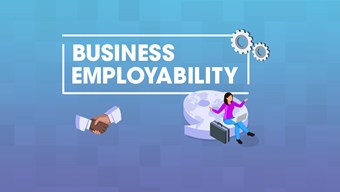Having a healthy work-life balance is hugely important to people from all walks of life. Whether you’re a student in your first year of studies or the CEO of a global corporation, everyone is susceptible to stress and its negative effects.
By Cara Fielder. Published 23 April 2019. Last updated 29 January 2020.
Our lives are becoming busier than ever, therefore, juggling work life and personal life has become more challenging. Today we take a look at how you can improve your work-life balance.
Why is work-life balance important?
A healthy work-life balance has been proven to have a number of positive effects on individuals and their work. The main benefit most people see once they begin to reign back their overworking is an improvement in their health and wellbeing. Symptoms of stress and overworking can include a constant feeling of exhaustion and a weakened immune system which can lead to numerous coughs, colds and infections.
Studies have shown that positive emotions can help to broaden minds, build interest, and energize, while negative emotions restrict thinking, and discourage receptivity to new things and initiatives. So it should be no surprise that a healthy work-life balance can also improve productivity. If you feel good about your overall life, you’ll be more committed, energised and bring more energy to your workplace.
Tops tips for a healthy work-life balance
Firstly, it’s important to recognise that not everyone’s optimum work-life balance is the same. Discovering your perfect balance might be a learning curve but it’s well worth taking the time and effort to make sure you stay fit, healthy and working well. If you’re losing sleep or wake up dreading another day at your workplace then it’s time to take a step back and see if the below tips could help.
Make your workspace work for you
If you’re a student or employed in an office based role then chances are you spend a lot of time sitting at a desk. Ensure that your workstation is set up so you’re as comfortable as possible and to minimise any injury. You can find out more with this display screen equipment (DSE) workstation checklist.
Take regular breaks
Whether it’s making a hot drink, going for a resilience walk or simply chatting with a friend, regular breaks are vital. After a certain amount of time on one task your brain will need a break to reset. Brains need a break roughly every 90 minutes or alertness wanes, leaving you fidgety, with difficulty focusing and often drowsy.
Be realistic
Setting goals for both your professional and personal life is fine but remember to make these realistic and don’t put too much pressure on yourself (or accept it from others). Setting an unrealistic goal is the quickest way to set yourself up for a fall and quash your own confidence. Just don’t do it.
Don’t let other people’s work habits influence your own
As mentioned earlier, everyone’s perfect work-life balance is different. Don’t feel pressured into following other people’s routines if you know they won’t work for you.
Exercise
A recent study reported in the International Journal of Workplace Health found that people who exercise during the day are 23 per cent more productive at work. It reports that taking 30 minutes for exercise during the day or walking for 5,000 steps can make your more productive than if you worked without a break. Exercise isn’t just about keeping your body fit but also your brain. Exercising allows the body to build new connections between brain neurons, helping to increase attention and focus.
Learn to prioritise
Sometimes easier said than done but if you’re juggling numerous tasks on a daily basis, prioritisation is key. Try to break down your tasks into four categories; urgent and important, important but not urgent, urgent but not important, neither urgent nor important. This will help you to plan your day and become more productive.
Technology is there to help you
If you’re wearing yourself out running from pillar to post for meetings, make the most of technology available to you and use Skype to attend instead. If you need a break from a fast paced office, make sure you have remote access enabled and work from home.
Do what you love
Don’t dismiss your hobbies and passions for pastimes that can wait for another day. Schedule in time to ensure you have time to do the things that make you happy. If you’ve got no perks to look forward to and can only see a long line of work days ahead of you, this can easily become overwhelming and ultimately hinder your productivity.
Take your annual leave
It’s there for a reason and there are no prizes for not taking it so make sure you use your annual holiday entitlement. You don’t have to be going on a fancy foreign getaway, maybe you just fancy a pyjama day with Netflix or want to take some time off to spend with a friend you don’t see enough, do whatever helps you to unwind.
Set aside time for your loved ones
Family, friends and beloved pets are the ultimate stress busters. From lavish date nights to simply going out for a walk, spending time with someone you love is the best way to relax and really feel your work-life balance in effect.
Discover how The University of Law can support your ambition.



